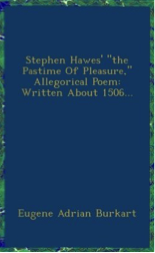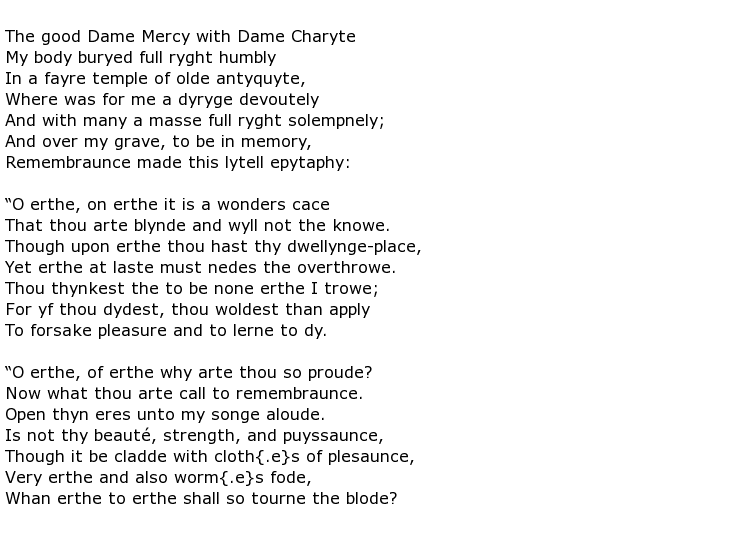 Stephen Hawes was a popular poet in Tudor England whose work was well known and admired in the 15th and 16th centuries, but much less so nowadays. His work was greatly inspired by allegorical poetry and medieval romantic pieces from earlier times.
Stephen Hawes was a popular poet in Tudor England whose work was well known and admired in the 15th and 16th centuries, but much less so nowadays. His work was greatly inspired by allegorical poetry and medieval romantic pieces from earlier times.
Details about his early life are quite sketchy but it is believed that he was born somewhere in Suffolk, but this is purely based upon the popularity of the name Hawes in that region of Eastern England at the time. His year of birth is believed to be 1474 and it is known that he attended one of the Oxford colleges before setting off on a tour that covered England and Scotland, and then to France.
His name as an accomplished poet was becoming well known and this won him the position of Groom of the Chamber at the royal court of Henry VII sometime during 1502. He wrote his own poetry, of course, but he also studied the work of other poets such as John Lydgate, and he would often recite verses written by others having learned the lines off by heart. This arrangement certainly lasted until at least the year 1521 as there is an entry in King Henry’s household accounts referring to a payment “to Mr Hawes for his play”.
Although popular in his lifetime, history has treated Hawes unkindly. When the critic C S Lewis produced a book in 1944 called English Literature in the Sixteenth Century Excluding Drama, he was quite dismissive about Hawes. He believed the man capable of producing more than he did, perhaps accusing him of laziness in his work. He also described him as producing

One would, of course, need to be a keen student of Tudor English to fully appreciate the work of Stephen Hawes but some critics have praised his work, suggesting that he occasionally wrote lines that could have come from the pen of someone like Geoffrey Chaucer. Examples quoted include:

His best known work of allegorical poetry has an extremely long title but is generally known by the shortened version which is The Passetyme of Pleasure. This appeared in 1509 although Hawes had finished it at least three years earlier. The basic theme of the piece, written in seven-line stanzas, is man’s life on earth and is told in an epic, romantic style Here are the first three verses of the poem:

Death, the Seven Deadly Sins, Contrition and Conscience all play their parts in this tale that is told of the heroism of a knight called Graunde Amours. He succeeds in his grand quest in the end and we are able to place his name alongside those great knights of antiquity before parting with the hero. The poem was much admired by other writers and the general public. It is believed that fellow allegorical poet Edmund Spenser was much influenced by it.
Stephen Hawes died some time during the year 1523, at the age of 49.

